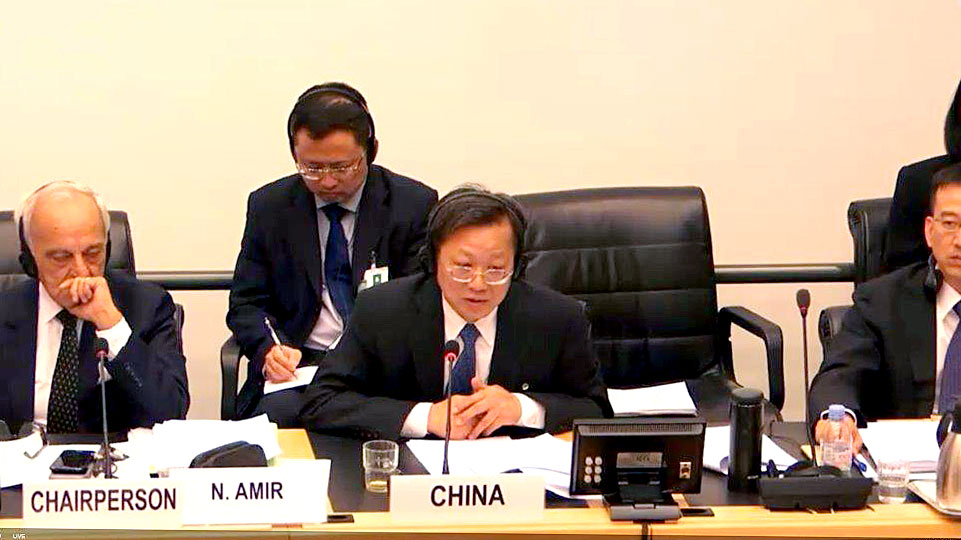
The Chinese delegation given their response to CERD experts at the UN in Geneva.
GENEVA — Today at the United Nations Committee to Eliminate Racial Discrimination, the Chinese government flatly denied its human rights violations in Tibet and other areas of the People’s Republic of China, instead painting a rosy picture of personal freedoms that left the body of independent human rights experts in disbelief.
“To state, as the Chinese delegation did today, that it ‘has taken good care of Tibetan culture and religion’ when more than 150 Tibetans have self-immolated since 2009 is beyond ignorant,” Kai Mueller, Head of UN Advocacy for the International Campaign for Tibet, said at the conclusion of the hearing in Geneva, which began with questions from the experts on Friday, Aug. 10 and ended today with responses by the Chinese government.
“The Chinese delegation gave many false and misleading answers to pressing questions about the situation of Tibetans and Uyghurs,” another persecuted group in China, Mueller added. “Legitimate grievances were flatly labeled as criminal, separatist or even terrorist. Tibetan language advocate Tashi Wangchuk, who was sentenced to five years’ imprisonment for peacefully advocating Tibetan language rights, was called ‘splittist’ and his actions ‘criminal.’”
When referring to Wangchuk’s case, the Chinese delegation admitted that he had been able to meet his lawyers only twice during 28 months in detention before he received his sentence in May.
Several times during today’s hearing, Chinese delegation members invited UN representatives to visit Tibet, but in reality, UN experts, diplomats, parliamentarians, journalists and independent experts are systematically denied access to Tibet and other restricted areas, except on strictly controlled propaganda tours led by the Chinese Communist Party.
The committee had raised a number of issues with the Chinese delegation, such as the protection of the Tibetan language, the rights of Tibetan nomads and herders and the status of religious freedom in Tibet, as well as the cases of Wangchuk and Tibetan Buddhist teacher Tenzin Delek Rinpoche, who died in Chinese custody in 2015 and whose death has not been independently investigated.
The committee repeatedly demanded impartial investigations into cases of torture, ill-treatment and deaths in custody.
Disbelief toward the answers of the Chinese government led one committee member to ask at the end of the hearing whether the Chinese delegation “has not come here all the way from China to tell us everything is okay.”
The committee is expected to publish concluding observations on its review of China by the end of August.
Read ICT’s statement to the committee challenging China’s record on Tibet.

